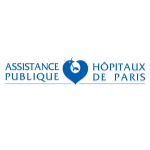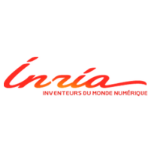COVID-19 Rapid Response Innovation Project
Improving home monitoring of patients with mild-to-moderate symptoms of COVID-19
The challenge
Providing ambulatory medicine based on remote surveillance for COVID-19 patients with mild-to-moderate symptoms can help to preserve medical resources for the most severe patients and limit in-person interactions during the pandemic. While most patients will be able to endure the disease at home, it is estimated that 10 to 15% of the cases will become more severe, requiring hospitalisation. The challenge of remote monitoring therefore is to identify the patients at risk of deterioration as quickly as possible, and to propose a timely response.
The solution
Covidom is a web application for home management of patients with mild-to-moderate symptoms of COVID-19 through distant monitoring. The application has proven to be helpful, but this project will seek to improve it with patient data. Patients using the app fill in brief, standardised daily questionnaires on their symptoms for 30 days. Their answers are analysed by algorithms, and when a problem is indicated, the system generates mild or top-priority alerts, which are managed by a single regional control centre. In case of an alert, the control centre can refer the patient to a consultation or hospitalisation, or else send mobile emergency services directly to a patient’s home. Covidom was launched in the Paris area on 9 March 2020, and 50,000 patients are already included in the system. Now it is being deployed in other French regions. The Covidom team initially developed empirical algorithms to trigger alerts, but many alerts proved to be irrelevant. The project team will use patient data that has already been gathered by the system to improve the algorithms, thereby making the Covidom platform more efficient.
Expected impact
Covidom benefits the health system by enabling patient care while preserving hospital beds and the time of professional carers for patients that truly need these resources. It also mitigates risks to healthcare workers by reducing their direct contact with COVID-19 cases. Learning from patient data obtained through the app will not only improve the accuracy of the Covidom algorithms, it will also provide valuable information on the nature of COVID-19.
All Partners
EIT Health members
- Assistance Publique – Hôpitaux de Paris
- Inria
External partner
- Nouveal e-santé
Members

CLC/InnoStars: France
Partner classification: Tech Transfer, Clusters, Other NGOs, Hospital / University Hospital
Partner type: Core Partner
We are a teaching hospital with a European dimension globally recognized. Our 39 hospitals attended each year 8 million sick people: consultation in emergency hospitalizations during scheduled or home hospitalization. We provide a public health service for all, 24/24, and it is for us both a duty and pride.
Assistance Publique - Hôpitaux de Paris
Assistance Publique - Hôpitaux de Paris, 1 Avenue Claude Vellefaux, 75010 Paris, France


CLC/InnoStars: France
Partner classification: Research
Inria, the French National Institute for computer science and applied mathematics, promotes scientific excellence for technology transfer and society. 3000 researchers, nearly 200 teams, 20+% dedicated to life sciences and healthcare questions. Inria, the French National Institute for computer science and applied mathematics, promotes “scientific excellence for technology transfer and society”. Graduates from the world’s top universities, Inria's 2,700 employees rise to the challenges of digital sciences. With its open, agile model, Inria is able to explore original approaches with its partners in industry and academia and provide an efficient response to the multidisciplinary and application challenges of the digital transformation. Committed to assisting innovators, Inria provides the ideal conditions for fruitful relations between public research, private R&D and industry. Inria transfers its expertise and research results to startups, SMEs and major groups in fields as diverse as healthcare, transport, energy, communications, security and privacy protection, smart cities and the factory of the future. Inria has also fostered an entrepreneurial culture that has led to the creation of 120+ startups.
Key Activities in Corporate Innovation
ICT
Key Activities in Business Creation
Incubation, Finance & Investment, Technology Transfer
Key Activities in Education
Entrepreneurship training, Technical faculties
